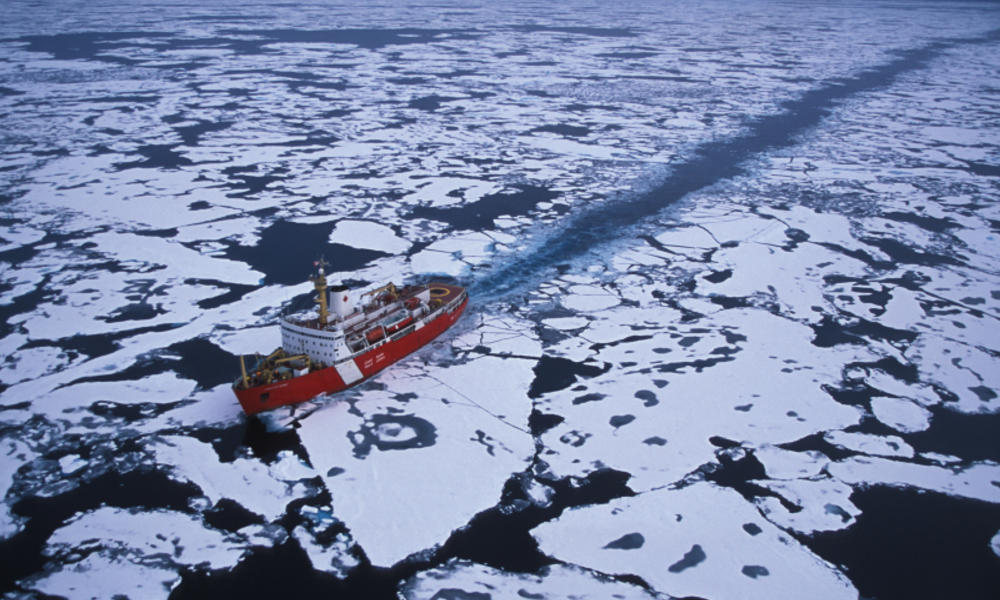The Clean Arctic Alliance criticized as outrageous the UN agency International Maritime Organization's (IMO) ban on the use and carriage of heavy oil fuel (HFO) by ships in Arctic waters as it would come into effect only in mid-2029.
The IMO's approval of the ban during a session of its Marine Environment Protection Committee (MEPC) indicated that it would take effect after July 1, 2024.
However, the coalition noted that if exemptions and waivers are taken into consideration, a complete HFO ban would only come into effect after five years.
The IMO said that ships with oil fuel tanks are inside double hulls would be exempted.
There's also a provision allowing countries with Arctic coastlines to issue waivers to their ships operating in the area until July 1, 2029.
According to Sian Prior, a lead adviser to the Clean Arctic Alliance, the ban makes three-quarters of the ships using HFO today eligible for an exemption.
Prior added that in its current form will only minimally reduce HFO use and carriage by ships in the Arctic in mid-2024.
The Arctic has been warming at least twice as quickly as the rest of the world in the last three decades with shipping traffic increasing.
HFO produces higher emissions of harmful pollutants, including nitrogen oxides, black carbon, and sulfur oxide. Also, there's the risk of HFO spill from a ship, which could be devastating to the Arctic’s ecosystem.
The IMO is expected to formally adopt the measures in the next MEPC session set for June 2021.



 RBI Holds Repo Rate at 5.25% as India’s Growth Outlook Strengthens After U.S. Trade Deal
RBI Holds Repo Rate at 5.25% as India’s Growth Outlook Strengthens After U.S. Trade Deal  Gold and Silver Prices Climb in Asian Trade as Markets Eye Key U.S. Economic Data
Gold and Silver Prices Climb in Asian Trade as Markets Eye Key U.S. Economic Data  Nikkei 225 Hits Record High Above 56,000 After Japan Election Boosts Market Confidence
Nikkei 225 Hits Record High Above 56,000 After Japan Election Boosts Market Confidence  Trump Signs Executive Order Threatening 25% Tariffs on Countries Trading With Iran
Trump Signs Executive Order Threatening 25% Tariffs on Countries Trading With Iran  Australian Household Spending Dips in December as RBA Tightens Policy
Australian Household Spending Dips in December as RBA Tightens Policy  Trump Lifts 25% Tariff on Indian Goods in Strategic U.S.–India Trade and Energy Deal
Trump Lifts 25% Tariff on Indian Goods in Strategic U.S.–India Trade and Energy Deal  Japan Economy Poised for Q4 2025 Growth as Investment and Consumption Hold Firm
Japan Economy Poised for Q4 2025 Growth as Investment and Consumption Hold Firm  Global Markets Slide as AI, Crypto, and Precious Metals Face Heightened Volatility
Global Markets Slide as AI, Crypto, and Precious Metals Face Heightened Volatility  Japanese Pharmaceutical Stocks Slide as TrumpRx.gov Launch Sparks Market Concerns
Japanese Pharmaceutical Stocks Slide as TrumpRx.gov Launch Sparks Market Concerns  India–U.S. Interim Trade Pact Cuts Auto Tariffs but Leaves Tesla Out
India–U.S. Interim Trade Pact Cuts Auto Tariffs but Leaves Tesla Out  UK Starting Salaries See Strongest Growth in 18 Months as Hiring Sentiment Improves
UK Starting Salaries See Strongest Growth in 18 Months as Hiring Sentiment Improves  U.S.-India Trade Framework Signals Major Shift in Tariffs, Energy, and Supply Chains
U.S.-India Trade Framework Signals Major Shift in Tariffs, Energy, and Supply Chains  Russian Stocks End Mixed as MOEX Index Closes Flat Amid Commodity Strength
Russian Stocks End Mixed as MOEX Index Closes Flat Amid Commodity Strength  Asian Currencies Stay Rangebound as Yen Firms on Intervention Talk
Asian Currencies Stay Rangebound as Yen Firms on Intervention Talk  Oil Prices Slip as U.S.-Iran Talks Ease Middle East Tensions
Oil Prices Slip as U.S.-Iran Talks Ease Middle East Tensions  Australian Pension Funds Boost Currency Hedging as Aussie Dollar Strengthens
Australian Pension Funds Boost Currency Hedging as Aussie Dollar Strengthens 































